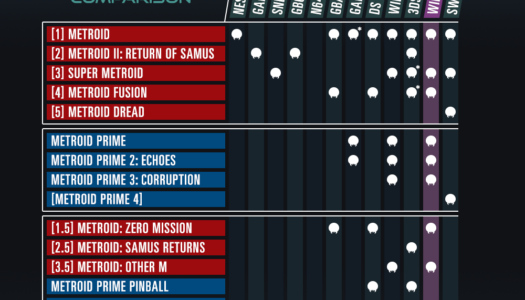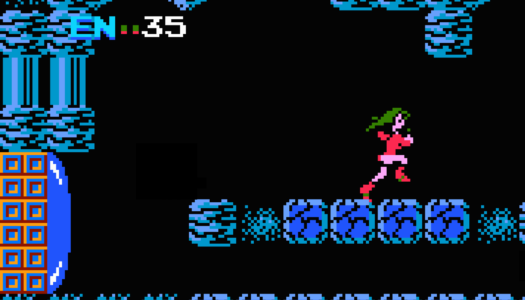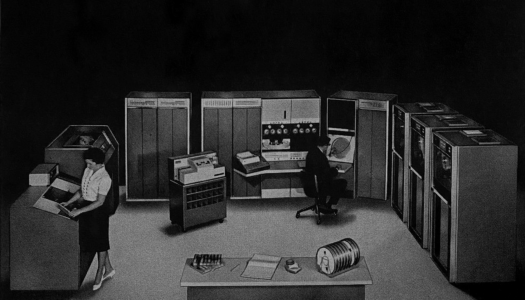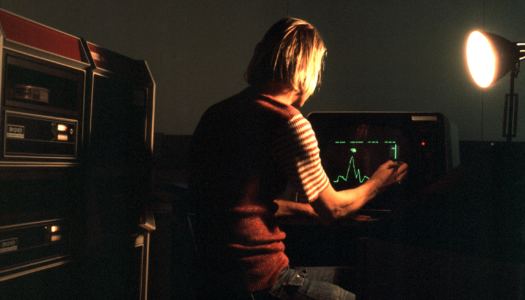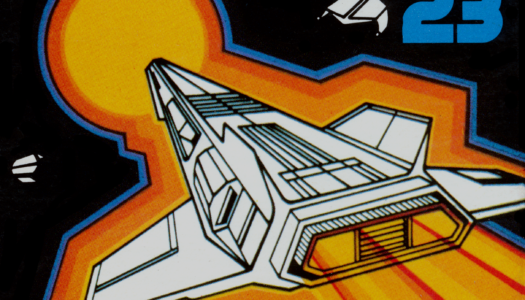Rock Band Blitz
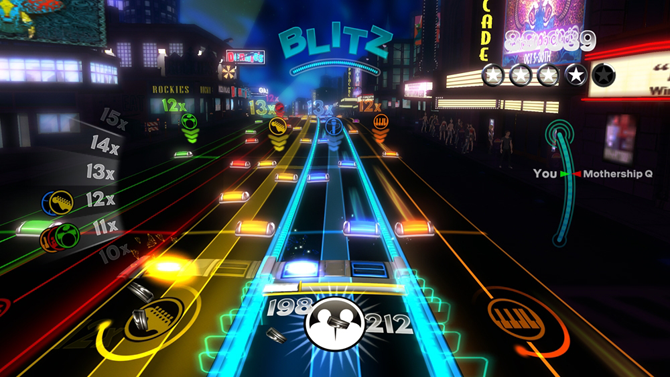
Publisher: Harmonix / Developer: Harmonix / Platform: PSN, XBLA
Rock Band Blitz is basically Rock Band, but instead of using a plastic instrument you’re using the triggers (or bumpers, or sticks, depending on your control scheme) and controlling all five instruments at the same time. It is both a dumbing-down and complicating of the standard rhythm instrument game formula that brings me back to when I was a kid.
See, back when I was in high school, I worked part-time at a video game retail store. This was around the same time that games like Guitar Hero and Rock Band were popular. We used to have a copy of Guitar Hero II set up on the Xbox 360 demo unit along with one of the plastic guitar peripherals. It was fun, but after so many customers coming in and using it, the guitar started to wear down and became difficult to use. Because of this, I started experimenting with using the Xbox’s controller itself rather than the guitar peripheral. It worked surprisingly well, with both triggers and bumpers and the A button replacing the five fret buttons on the guitar. It quickly became an intense exercise in manual dexterity, having to quickly utilize your fingers to match the notes onscreen. Personally, I found it – and still find it – more fun than the “real” game. Rock Band and the later GH titles did not have this feature so it was soon forgotten, much to my dismay.
So why, exactly, am I telling you about this? Because Rock Band Blitz is sort of like a mix between this alternate way to play Guitar Hero and Frequency, another rhythm-based gem from my childhood.
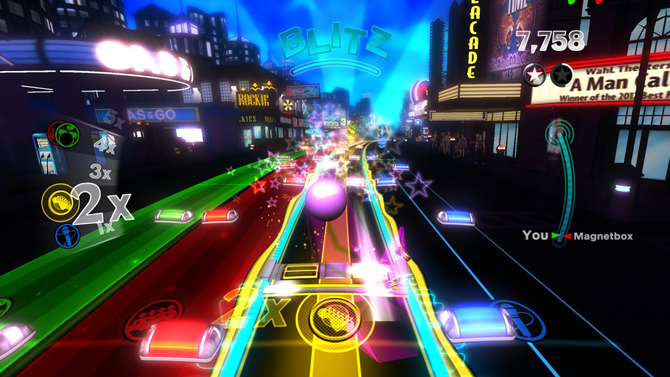
In Rock Band Blitz, you follow the same formula of hitting the right notes as they reach the bottom of the screen, just like the other games. As you hit the right notes, you’ll gain score and increase the multiplier for that instrument. You can switch between instruments at any time, which involves moving over into that instrument’s “lane”. The other instruments will still play as you switch around, but you won’t gain score. You have to carefully juggle the multipliers for each instrument as the song progresses, as the multiplier cap raises depending on how high you kept each instrument’s multiplier at certain sections of the song.
Additionally, as you play you’ll unlock different powerups, ranging from passive – like making the drum track worth extra points – to ones you have to “charge up” and use – like adding a temporary bandmate. These powerups feel fun to use and can really help to up your score, however the way they are handled is a little awkward. As you complete songs you are awarded coins, which you spend each time you “equip” a power before choosing a song. It’s strange, since it’s almost like you’re being punished for using a powerup. Using your hard-earned coins to have a little extra fun and up your score seems strange when they’re organized in a Call of Duty-esque perk format. It just feels odd to use a limited resource on something that should be a standard game feature.
Surprisingly, the entire Rock Band downloadable songs catalogue is available and compatible with Rock Band Blitz. Any songs you may have downloaded for previous games – or songs you were looking to download – can be used with Blitz. I can admit I’ve already spent a few dollars on old favorites, both because I was curious to see how they held up in the game, and the fact that the initial library of free games runs dry pretty quickly.
Rock Band Blitz is definitely fun. It’s an addicting game, and the control scheme works well and feels right. While the powerup and coins elements of the game are a little off, it is still a fun game that is worth checking out, regardless of your previous experience with rhythm instrument games.










